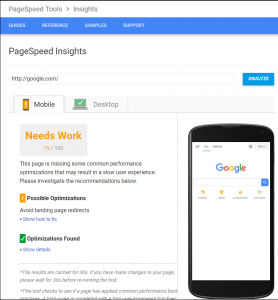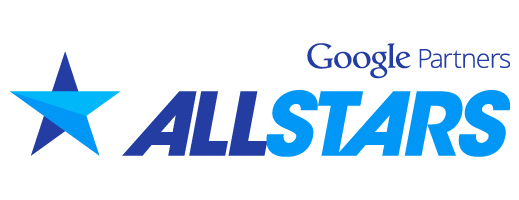SEO for Startups – A Strategy Proven to Get Results

There are plenty of overwhelming studies which showcase how often consumers will utilize major search engines, primarily Google. Alexa, a website that ranks websites by popularity lists Google as the #1 visited website in the world.
Keep in mind that SEO takes time. It is a long-term process. If you need instant results, sales, or leads coming in right away you might want to consider hiring an Adwords management company like ours. Alternatively, if you wish to save some coin you can always learn to manage your adwords campaign yourself. Partner, Sergio Aicardi developed a comprehensive adwords learning course which has fantastic reviews on Udemy.
Before we get into what SEO you can do for your startup, you must first understand the user.
SEO for Startups – Why People use Google
It’s no secret that everyone in the world is using Google to find things. Not only are people using Google to find local services or products, they’re also now expanding to use it for reminders, news, weather and more. As Google continues to expand, there’s no telling what people will use Google for next. For business owners, its critical to show up on the #1 search engine, that is where SEO comes into play. Further, people who typically use Google are doing so for a few very critical reasons which I will briefly explain below:
-
Seeking Information – Not everyone uses Google to seek out companies products or services. Many times you may have a simple question. How far is the moon from earth? This search query (search term) has little to do with a service based business or eCommerce store. Millions of people use Google as a “fact checker” or to get answers to information they seek on a daily basis. Or someone who searches – car. You would have no idea if this person was seeking a race car, family car, electic car, the history of cars, etc.
-
Comparing Services or Products – Some visitors will know they need a product or service but may want the best deal possible, may want the highest quality product or service, may want some free things thrown in with the deal, etc. A simple example is if you wanted to compare a Honda vs. a Toyota. You would likely want to see consumer reviews, professional reviews, compare gas mileage, maintenance costs, costs of the standard vehicle, costs with options, etc. In this example, you may search for Honda civic gas mileage, honda civic standard price, etc. You would then do the same for the Toyota Corolla.
-
Inquiring / Buying Services or Products – Lastly, some visitors will be ready to inquire to a service based company or purchase if an eCommerce company. This person is usually done with their research or have an immediate need for the service or product. For instance, if someone types emergency plumber open 24/7 near me. You can tell that user has an emergency and if you do a good enough job at convincing that user to visit your website and you have good visibility, you have a strong chance at earning their business. Most industries have these “golden” keywords that have the perfect user intention.
The goal of any well structured campaign will focus on obtaining the visitors who are in the 2nd and 3rd numbers above. Each piece of content should be focused solely on where that person is in their journey. In other words, you wouldn’t want an overly persuasive pushy article for someone who is just gathering information.
SEO for Startups Strategy – Website Architecture

Be sure you separate your website by categories. For instance, if you are an emergency restoration company, you will have a sub-page for Water Damage, Fire Damage, Mold Remediation, etc. If you are eCommerce, you would do the same with your product categories. For instance, if you sell car parts, you would have a sub-page for Tires, Rims, Interior Parts, Engine, etc.
If you are a service based company, you should think about how far your reach will end up being. For instance, if you are that emergency restoration company then you would want to have sub-folders for your state and cities. i.e – 123restoration.com/water-damage/florida/miami <—you would focus on water damage repair in Miami or whatever keyword for water damage in miami gets the largest search volume. You would replicate this x however many cities you would want to rank for.
However, it is critical you write unique content that will actually help people in that area. If you copy content or use low quality content you can harm your website. For instance, if one city has a higher usage of septic tanks be sure to include that if it is relevant to your service as an example.
SEO for Startups – The Basics
Be sure you are hooked up with Google Analytics & Google Webmaster Tools.
For Google Analytics be sure you setup conversion tracking so you can be aware of where your conversions (purchases or leads) are coming from. Especially if you are spending time on social media marketing, email marketing, PPC advertising, and SEO. Here’s a guide directly from Google on getting conversion tracking going.
With Google Webmaster Tools, you will want to ensure you do not have many 404 errors and that you have an XML sitemap uploaded. Be sure that everything is configured properly. Here’s a great post by KissMetrics on configuring your Google Webmaster Tools.
SEO for Startups Strategy – Site Speed Optimization / Mobile Friendly

What is the common denominator? Something occurred that was so frustrating you likely left the webpage you were visiting. For you to get into Google’s good graces, you will want to play by their rules. Make your website fast. You can see what needs improving by heading over to their very own Site Speed Insights Tool. Simply enter the URL of the page that you want tested for speed and usability and vua-la, Google’s tool will tell you what your page needs to have fixed or improved. It will also tell you what optimizations were found if any are present. Make sure to work on any items that need work but keep in mind you don’t need to get a 100 out of 100, even Google has a score on mobile that isn’t that great. Many sites still rank very well even though the page speed insight report is not perfect.
To fix these items you will likely need a website developer to take care of each and every action item. Don’t fret if you are not at 100. Many websites are not. If you can get over 80 for mobile and desktop, you are good to go.
It was confirmed not to long ago that an algorithm update was launched for mobile friendliness. So make sure your theme or website is mobile friendly. It is critically important these days, especially if you are in a competitive industry which nearly every industry is online these days. (The secrets out and everyone is trying to rank on Page One).
SEO for Startups Strategy – Content is Critical
You’ve likely read, “content is king”. Well it is a very critical staple to SEO. Your #1 goal is to be an expert in your field and share this information with your potential visitors. After your website architecture is sound, you will want to write at minimum 600 words about that specific topic.
You will want to head over to SEMrush.com or your favorite keyword research tool to group your keywords by page/product category/service/etc. Do not go here to find keywords only to stuff them into your page. Our goal is for you to find the search term with the highest search volume so you can use the most searched variation in the first sentence, use variations in headings, image alt tags, etc.
Write your heart out. Give industry tips others pay money for. Chances are many of your prospects won’t have the time to do your service nor will they have the expertise. But hey, for the few that are DIY’ers, they’ll certainly appreciate it. The more content the better. We write well over a 1,000 in many instances. Just so you know, if you made it this far in our SEO for Startup Strategy, you’ve read over 865 words already!
Also don’t be stingy, be sure to link to plenty of reputable or authoritative sources. That doesn’t mean you have to link to your competition! Google enjoys when you share other well known websites and give your readers a chance to learn from reputable websites.
Give yourself some love too! Link to internal resources that will help your reader out. This is fantastic for SEO.
Be sure to break sections into headings. This is done with Header tags. Think of these like chapters which separate thoughts. Look at the headers (big words) above, and you’ll see they are for specific aspects of SEO for startups. Strategy isn’t hard as long as you know what to do! With the headings you do not always want to use h1 (the largest).
Bonus Tip: Don’t write one large blob of content. Ever read 1,000 words without proper spacing or line breaks? You wouldn’t want to. No matter how good your content, our job is to make our visitors experience pleasurable.
The SEO for Startups – Blogging
You always here how blogging is important. We often get asked the question, “Why should I blog if no one is even finding my website?” Very logical question. The question is the answer.
You see, we recommend you blog about a sub-niche of your product or service. Or maybe even focus in on a very small area in your town. Follow the steps in the content section above for this blog post and eventually your website will start ranking for very long-tail keywords.
It doesn’t mean you will rank for your main money keyword overnight. However, the more pages you publish about your topic, the more Google will believe that you are an expert on that topic. Here is a quick example. If we both owned a shop that modified cars, whose website do you think Google would consider more authoritative?
My website, which is updated weekly and has hundreds of posts about the latest technology regarding brakes, aerodynamics, forced induction, tires, exhaust, weight reduction, etc; vs. another website which doesn’t have a blog and hasn’t been updated in 4 years?
Focus on very specific ideas. So when you did your keyword research maybe write an entire huge authoritative blog on something that gets less than 10 searches a month. Eventually all these small posts will increase the overall strength of your entire website.
SEO for Startups – Off-Page SEO & Link Building

*Insert Jeopardy music here*
Alex, What is whoever has more relevant and quality links! That’s right Google main patent and why they became popular is because the founders developed an algorithm known as Page Rank. Even though this numerical number is no longer a huge deal, the fact remains that links are important.
If your website has links from huffington post, forbes, relevant industry websites, authoritative websites in your general niche, frequent bloggers writing about your company, you are obviously doing something right.
So the goal is to gain backlinks from all sources around the web. Caution. Do not go buying software that blasts your links all over the web or even buying links. There are rules to this game. Doing the aforementioned will get your lovely domain/brand in the toilet. A penalty or filter will be applied to your website. So be cautious. Do not over optimize anchor text. This is anchor text.
One example is you can sign up at Medium.com and write a post. Refer to the content is critical section above so you have some general guidelines to follow. Remember offer value. Don’t write just to write. The more your content gets shared, the better.
Should You Outsource your SEO for Startup Strategy?
Here’s my plug. Yes! Hire our team! Only if you are financially able. We have plenty of case studies from domain acquisition to domination of a national industry in just under two years.
I would caution against outsourcing overseas because there are plenty of horror stories of that work getting websites penalized. If you think I’m blowing smoke to scare you into hiring us, feel free to Google the following: Google Panda Update & Google Penguin Update. Many companies are using archaic tactics.
Bottom line, before hiring anyone. Ask for current case studies. Ask for current references. Ask for current rankings of their own website. We love educated consumers because we have nothing to hide and love showcasing our successes. Give us a call today if you want to dominate without question. If not, we hope you enjoyed this resource!








